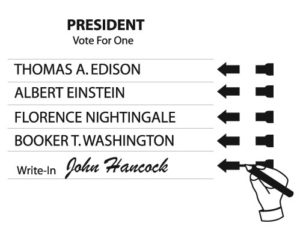As I watch my parents age, it’s hard not to play the “what if” game. For example, what if one has a stroke and the other can’t take care of their spouse in the home? What if there was no way that one could stay in the home? If they need long-term care, where do they want to stay? Instead of playing this game in my head, I decided to pose this hypothetical scenario to my parents.
“Mother, what if you had a stroke, and Tinsley couldn’t take care of you?” I asked. “Have you given any thought about where you would want to receive your care?” I asked her if she was open to touring several of our reputable life care facilities so I could get her opinion while she is able to make these kinds of decisions.
“Tinsley, what do you think?” Mother asked.
“I’ll go, but I don’t really want to,” Tinsley said. He was not enthusiastic.
I heard the reluctance in his voice. It’s hard to plan for uncertainty, and it’s uncomfortable for anyone to think about their mortality.
As I left their house, I wondered if I had made a good decision broaching the subject. Maybe I’m jumping the gun. Maybe I should explore these facilities on my own. Yet, I want their input so that if or when that day comes, they have the opportunity to voice where they want to receive their care. It seemed noble at the time.
A couple of weeks went by before I decided to call Kim, the Marketing Director of Westminster, a life care community in Austin. Many Austinites consider it the “crème de la crème” of the three life care communities here. Life care communities are those in which independent living, support services, assisted living, memory care, rehabilitative services and skilled nursing are all available at the same facility for any person age 62 or older.
I introduced myself to Kim and explained that I wanted to set up a time for us to tour their facility and gather information. She offered the timeframe of 2-5pm.
“It takes three hours to tour Westminster?!” I asked incredulously.
“I have been in this business twenty-five years, and most people want to know the cost, and that takes time to explain,” she said.
I called Mother so she could put the tour on their calendar. I suggested that they meet me there in case they lost interest or the meeting was too long for them. She liked the idea that they could walk away at any time.
We showed up at the appointed time and enjoyed a nice tour of this facility. They had 75 new apartments built in the last five years that were in great condition. We walked through a 1,200 square foot apartment that had two bedrooms and two baths. The facility featured a theatre with 25 chairs just like you’d find at a movie house. There was a cozy library on the second floor where we observed a couple of residents enjoying the New York Times or a new bestseller. Downstairs, we found a bistro for those who wanted to order off of a menu rather than go through a typical buffet. Kim showed us to the indoor, heated swimming pool, the hot tub, the fully equipped fitness center, and the fully stocked creative arts studio. For the golf lovers, they have a practice putting green outside in the atrium area!
Upon finishing the tour, we were thoroughly impressed and huddled around Kim’s desk eager to learn how one becomes a resident of Westminster. Kim stated that residents have to start with independent living, after which Westminster guarantees residency in assisted living or skilled nursing if needed.
“Kim, what if one of my parents had a stroke that required Assisted Living, but they are not a resident yet. Are you saying there is no way they could enter the Assisted Living area?” I asked.
“We would not be able to accept them as a resident,” she replied.
“Okay. Let’s talk about how they become an independent living resident,” I said.
“Your parents can add their name to our waiting list with a check of $5,000,” she said. “We are seeing an average of two to three years before a person on our waiting list gets a call. If your parents put their name on our list, we will call them upon the first opening for the apartment style they want. They can decline if they are not ready, but after the third decline, we need to consider if they still want to be on the list. If yes, they go to the bottom of the list. If they decide not to come here, we will refund $5,000.”
“Okay. So let’s say they are ready to take an apartment. Then what happens?” I asked.
“They have to go through both a financial and medical assessment before we can approve them,” Kim said.
“The financial resources won’t be an issue. Can you tell me more about the medical assessment?” I asked.
“We screen for six pre-existing conditions before we approve them for independent living,” she said. Kim read us the list of pre-existing conditions:
Parkinson’s; Chronic Obstructive Pulmonary Disease (COPD) including emphysema; congestive heart failure; metastatic cancer; osteoporosis with a history of fractures; or dementia.
“If they have any of these conditions, we cannot accept them as a resident,” she said matter-of-fact. Kim could see the concern on my face after she read the list. She had already spent two hours with us and could see which pre-existing condition might be a barrier.
“Do either one of you have dementia?” Kim asked while looking at my parents. They didn’t want to answer.
“They have mild cognitive impairment,” I said. “But I don’t see why that should stop them from being able to enjoy independent living.”
Kim gave logical reasons for it, but my mind was drifting to an irony while she addressed my statement. My parents worked hard to earn and build wealth. They should be able to access the best life care community available. But when they’re ready to transition there, they will be denied independent living because of dementia. If they need assisted living as their point of entry, forget it! It can’t happen in a facility like this.
I haven’t even touched the topic of the entry fee Westminster requires, but it’s not relevant for this post.
If I learned anything after this meeting, it is to remember that God is always in control. He already knows what our resources are going to be when it’s our time to receive care. He already knows the facility we’ll be in. He already knows who will be our primary caregivers, depending on our level of need. As much as the above scenario sounds unfair, God knows how to take care of His children. He has never failed to do so! God will make sure my parents receive exceptional care.
I DON’T KNOW WHERE OR WHEN THIS STAGE WILL OCCUR, BUT I HAVE FAITH THE LORD WILL PROVIDE FOR THEM.
In the meantime, I will continue to be proactive and at least get acquainted with the other life care communities in Austin. As for Mother and Tinsley, they thought this tour was premature. They think I’m “wasting my time” looking at facilities because they are not close to needing them. They may be right, but I don’t regret learning the information. I found comfort remembering that God has our back and has already worked out the details before we will ever know it.
Do you have a story about how you prepared to help your parents and how it turned out? What advice can you share to help each of us on our journey to care for our loved ones?
Blessings,
Lee Ann






